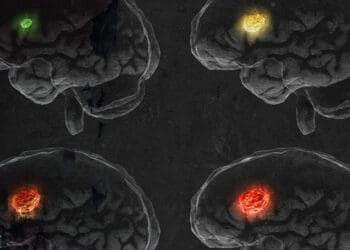Jesse Jackson, president of the financial institutions group at b1BANK, talks about a federal program aimed at increasing financial inclusion by expanding access to capital.
Financial institutions have an opportunity to play a vital role in developing diverse workforces and empowering the next generation of leaders to move the industry forward.
Supporting minority depository institutions (MDIs) is an important part of this process, as they play a vital role in increasing economic and community development financing within economically disadvantaged communities. According to the Federal Reserve Bank of Dallas, MDI assets have risen during the past 10 years and they’re slightly more profitable than non-MDI institutions. Yet, despite this growth, the number of MDIs has declined 20% during the same period because of voluntary mergers.
Project REACh (Roundtable for Economic Access and Change) is part of a broad effort across the nation that aims to bring together leaders from key industries and organizations to eliminate barriers, inspire change and create a more diverse and open environment. Through the project, financial leaders are helping to create a level playing field and promote an equitable, secure and productive future for everyone.
Developing opportunities for minority-owned banks
Upon joining the b1BANK executive leadership team, I felt there was an opportunity for us as a smaller institution to establish a focus specifically targeting minority-owned banks nationwide. Around the same time, the Office of the Comptroller of the Currency, FDIC and Federal Reserve Bank came together to launch Project REACh.
Project REACh promotes financial inclusion through greater access to credit and capital. It includes banking leaders, as well as civil rights organizations and business and technology leaders. The goal is to reduce barriers to full, equal and fair economic participation.
The program fuels community and economic development through community banks and other financial institutions. They, along with nonprofit organizations, create access to working capital for small and midsized minority-owned businesses.
What Project REACh asks of large money center banks, regional banks and community banks (like b1BANK) is to invest time and resources in advancing opportunities for strategic partnerships with minority financial institutions and tasked specifically with expanding the fairway for minority banks and the communities they serve.
Why Women in Leadership Are Quitting Their Jobs — and Why It Matters
Forget the Great Resignation. The Great Breakup is underway: Senior-level women are increasingly looking elsewhere for better opportunities. And as entrepreneur Monica Eaton explains, that’s to the great detriment of their previous employers.
Read moreDetailsBuilding meaningful connections
The Project REACh diversity initiative at b1BANK launched about two years ago, with full internal support of the board of directors and the executive leadership team. We currently have 10 minority banks engaged with our company and plan to double that number this year.
Project REACh helps us think creatively to help financial institutions that might not look like traditional banks or majority banks. And we’ve seen meaningful data that quantifies that success. Through the program, we have sold more than $30 million in loan participations to our MDI partners, most recently with a woman-owned community financial institution in Texas. We are seeing a high percentage of our loan participations being sold to MDIs even with the program being relatively new.
We have also been active in purchasing loans from our MDI partners, with more than $3 million in exposure purchased. Deposit activity has also been meaningful, with average balances between $30 million to $40 million in the past year. B1BANK more recently approved a reciprocal deposit relationship with an MDI where b1BANK placed a deposit with the MDI, creating liquidity for the MDI to deploy into the local community in the form of loans to meet small-business working capital needs and fuel local homeownership.
Project REACh also helps banks like ours connect with other financial institutions we might not otherwise touch. I recently attended a meeting at the Federal Reserve Bank in Atlanta, where I interacted with representatives of a minority-owned bank based in South Florida. That conversation led to an in-person visit to the bank’s CEO, where we developed opportunities for us to support their growth. This is just one example of how these programs can help banks work together to develop sustainable models and more vibrant communities.
We all need to get involved
The past few years have raised awareness of systemic problems in our economic system, including socioeconomic wealth gaps and the need for a robust banking system that supports minority communities across the country.
I’m gratified to see other banking related organizations taking intentional, meaningful action to address these challenges. The American Bankers Association, for example, has developed the Minority Depository Institution Advisory Council, which engages MDI members and provides them with additional resources and support, including biannual Minority Depository Institution partnership summits. These summits are co-hosted in partnership with the National Bankers Association, the national association for minority banks.
It’s inspiring to see these organizations driving meaningful discussions and creating opportunities for a more diverse and sustainable future. I encourage other banks, as well as businesses and community leaders, to get involved with these and similar efforts.
As we go through our day-to-day work, it is important to stay mindful of the bigger picture — to build a more diverse economic environment while also developing leaders who will help shape the future. It’s not just about building shareholder value and driving a return on investment. Our company is focused on this work because it’s the right thing to do.
At b1BANK, our efforts at improving diversity and supporting MDIs align with our company’s values — and they’re important to our investors, including our minority-owned banks and other community bank clients and partners. It’s through these types of collaborative relationships that we can support each other and create a more sustainable and secure future for everyone.
By investing in minority-owned banks and the communities they serve, we build a fairer and more equitable economy for all — and a pipeline of future leaders to keep these banks strong for generations to come.




 Jesse Jackson is president of the financial institutions group at b1BANK. Before joining b1BANK, Jackson served in senior roles at Texas Capital Bank, Origin Bank and Federal Home Loan Bank of Dallas.
Jesse Jackson is president of the financial institutions group at b1BANK. Before joining b1BANK, Jackson served in senior roles at Texas Capital Bank, Origin Bank and Federal Home Loan Bank of Dallas. 








